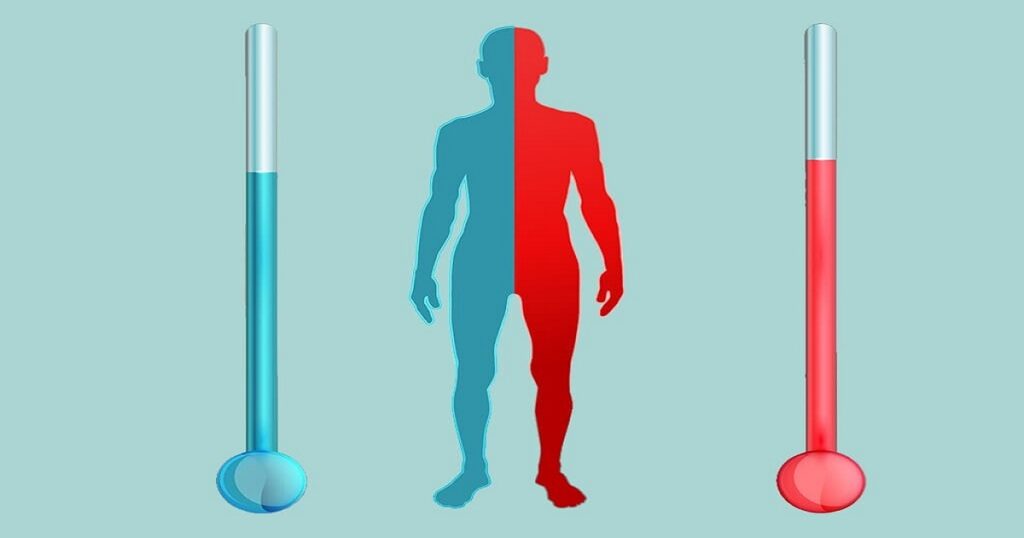Sitting in a jacuzzi burn calories refers to the process where one’s body naturally expends energy while relaxing in a hot tub. It’s not an intense workout, but the warmth and buoyancy of the water can make your heart rate go up, causing your body to burn some calories, much like a mild form of exercise.
Curious about whether you can lose weight while indulging in the luxury of a jacuzzi? In this exploration of does sitting in a jacuzzi burn calories, we’ll uncover the science behind it and whether it’s a viable way to contribute to your weight management goals.
While you won’t shed pounds rapidly by sitting in a jacuzzi, it’s fascinating to know that even in a state of relaxation, your body is working to burn calories. We’ll delve into the calorie-burning benefits, separating myths from facts, and help you understand how this simple activity can fit into your overall wellness journey.
Understanding the Mechanics of Calorie Burning
Calorie burning is a complex process that occurs constantly in our bodies to maintain basic bodily functions. It is a fundamental part of metabolism, which refers to all the chemical reactions that take place in living organisms to sustain life. The calories we consume through food and drink are broken down by our digestive system and converted into usable energy. This energy is then utilized by the body for various activities, such as breathing, circulating blood, and even thinking.
The rate at which we burn calories, also known as our metabolic rate, can be influenced by a variety of factors. One such factor is our biological makeup, including age, sex, and genetics. Generally, men tend to have a higher metabolic rate than women, and younger individuals tend to burn calories more efficiently. Additionally, the amount of muscle mass a person has can also impact their metabolic rate, as muscles require more energy to maintain than fat.
The Role of Body Temperature in Calorie Expenditure

Body temperature plays a significant role in the process of calorie expenditure. When our body’s temperature increases, it requires more energy to maintain its normal functions, leading to a higher calorie burn. This is because the body works harder to cool itself down and maintain homeostasis. Various factors can influence body temperature, including physical activity, external temperature, and the use of heat therapies like jacuzzis.
In a jacuzzi, the warm water raises body temperature, causing the body to work harder to regulate its internal temperature. As a result, calorie burning is increased during a session in this heated environment. Studies have shown that spending time in a jacuzzi can raise body temperature by a few degrees, leading to an increased metabolic rate. However, it is important to note that the increase in calorie burn from jacuzzi usage might not be substantial and should not be seen as a standalone method for weight loss. Nonetheless, incorporating jacuzzi sessions into an overall healthy lifestyle can potentially provide additional benefits for weight management.
Evaluating the Relationship Between Jacuzzi Usage and Calorie Burn
When it comes to evaluating the relationship between jacuzzi usage and calorie burn, researchers have conducted several studies to explore the potential benefits. One study found that sitting in a jacuzzi for just 30 minutes can lead to a significant increase in calorie expenditure. This is due to the heat generated by the jacuzzi, which raises the body’s core temperature and stimulates metabolism. However, it’s important to note that the amount of calories burned during a jacuzzi session can vary depending on factors such as water temperature, duration of the session, and individual characteristics.
Another study focused on the influence of jacuzzi heat on heart rate and calorie burning. The findings revealed that as the body is exposed to the warm water, the heart rate increases, resulting in a higher calorie burn. This suggests that the combination of heat and hydrotherapy in a jacuzzi can be an effective way to enhance the body’s calorie-burning capabilities. However, more research is needed to determine the long-term effects of jacuzzi usage on weight management and overall health.
The Influence of Jacuzzi Heat on Heart Rate and Calorie Burning
One important factor to consider when examining the influence of Jacuzzi heat on heart rate and calorie burning is the increase in body temperature. When you immerse yourself in a hot tub, the heat causes your body temperature to rise. As your body tries to cool itself down, your heart rate naturally increases. This increase in heart rate can lead to an increase in calorie burning.
Additionally, the heat from the Jacuzzi can also have a direct impact on your metabolism. The elevated body temperature caused by the hot water can help to stimulate your metabolism, causing it to work more efficiently. This increased metabolic activity can lead to an increase in calorie burning, even while you are sitting and relaxing in the warm water. Therefore, the combination of heat, elevated heart rate, and boosted metabolism makes Jacuzzi sessions potentially beneficial for those looking to burn calories and maintain a healthy weight.
Debunking Common Misconceptions About Jacuzzi-Induced Calorie Loss
Many individuals believe that spending time in a Jacuzzi can lead to significant calorie loss. However, it is crucial to debunk this common misconception. While Jacuzzi usage can have several health benefits, including relaxation and improved blood circulation, it is not a reliable means of burning calories or achieving weight loss.
One misconception stems from the belief that the heat of the Jacuzzi increases body temperature, leading to a higher calorie burn. While it is true that the body’s metabolism may slightly increase in response to heat, the effect is minimal. In fact, the calorie burning during a Jacuzzi session is comparable to that of light activities, such as sitting or lying down. Therefore, it is important to approach Jacuzzi usage with the right expectations, understanding that it should not be solely relied upon as a weight loss tool.
| Misconception | Explanation |
| Jacuzzis burn calories like a gym | While a jacuzzi can increase heart rate, it’s not a workout. |
| Sweating equals fat loss | Sweat loss doesn’t necessarily mean fat loss. |
| Rapid calorie burn | Jacuzzis provide a gentle calorie burn, not rapid. |
| Lose weight solely in a jacuzzi | Weight loss requires a balanced diet and regular exercise. |
An Analysis of Studies on Jacuzzi Sessions and Calorie Expenditure
Several studies have been conducted to determine the impact of jacuzzi sessions on calorie expenditure. One study published in the Journal of Applied Physiology found that sitting in a jacuzzi for 30 minutes can burn around 140 calories, which is equivalent to a 30-minute moderate-intensity walk. This suggests that jacuzzi sessions can be an effective way to burn calories and contribute to weight management.
Another study, published in the Journal of Strength and Conditioning Research, examined the effects of jacuzzi use on post-exercise calorie burn. The researchers found that participants who used a jacuzzi after their workout experienced an increase in calorie expenditure compared to those who did not. This suggests that the heat from the jacuzzi may help to boost metabolism and enhance the calorie-burning effects of exercise.
Factors That Affect Calorie Burning in a Jacuzzi
When it comes to calorie burning in a Jacuzzi, several factors can influence the amount of calories burned during a session. One such factor is the water temperature. Higher water temperatures in a Jacuzzi can lead to increased calorie expenditure as the body works harder to regulate its temperature. This increased effort by the body to maintain the core temperature can result in a higher metabolic rate and ultimately lead to burning more calories.
Another factor that can impact calorie burning in a Jacuzzi is the duration of the session. The longer the duration, the greater the potential for calorie expenditure. This is because the body continues to work to maintain its temperature throughout the entire session, leading to sustained calorie burning. However, it is important to strike a balance as prolonged exposure to hot water can potentially lead to dehydration, fatigue, or other adverse effects.
Maximizing Calorie Burn during Jacuzzi Sessions
When it comes to maximizing calorie burn during Jacuzzi sessions, several factors contribute to the overall effectiveness of the workout. The first key factor is water temperature. Research suggests that exposing the body to hot water can increase metabolic rate, leading to higher calorie expenditure. By setting the Jacuzzi to a temperature between 100-102 degrees Fahrenheit, individuals can promote a thermogenic response in the body, resulting in a greater calorie burn.
Additionally, incorporating low-impact exercises into Jacuzzi sessions can further enhance calorie burning. Activities such as water walking, leg lifts, arm circles, and squats can help increase the intensity of the workout while minimizing stress on the joints. By engaging in these exercises in the buoyant environment of a Jacuzzi, individuals can work their muscles harder without the risk of overexertion or injury.
The Potential Benefits of Regular Jacuzzi Usage on Weight Management
Regular usage of a Jacuzzi has the potential to provide various benefits for weight management. One advantage is the potential increase in calorie burning during Jacuzzi sessions. The high temperature of the water stimulates the body’s metabolic rate, leading to a higher expenditure of calories. This increase in metabolism is attributed to the body’s attempt to regulate its internal temperature in response to the heat. As a result, regular Jacuzzi usage can contribute to weight loss or weight maintenance by helping individuals burn extra calories.
Furthermore, regular Jacuzzi usage may also aid in weight management by promoting relaxation and reducing stress. Stress and anxiety have been shown to contribute to unhealthy eating habits and weight gain. By creating a calming and soothing environment, a Jacuzzi can help individuals unwind, reduce tension, and alleviate stress. This, in turn, may help to prevent emotional eating and promote healthier choices, ultimately supporting weight management goals. Therefore, incorporating regular Jacuzzi sessions into a well-rounded weight management routine may provide additional benefits beyond calorie burning alone.
FAQs
Can using a jacuzzi help with weight management?
Yes, regular jacuzzi usage has the potential to aid in weight management.
How does the jacuzzi help in burning calories?
The mechanics of calorie burning involve raising the body’s temperature, which can be achieved through jacuzzi usage.
What is the role of body temperature in calorie expenditure?
When the body is exposed to heat, it burns calories to regulate its temperature, leading to increased calorie expenditure.
Does jacuzzi heat affect metabolism?
Yes, the heat from a jacuzzi can stimulate metabolism, resulting in higher calorie burn.
Is there a connection between jacuzzi usage and calorie burn?
Research suggests that jacuzzi usage can enhance calorie burn due to the increased body temperature.
Conclusion
In summary, sitting in a jacuzzi can help you burn calories. The hot water and bubbles make your body work a bit harder, increasing your heart rate and boosting calorie expenditure. While it’s not a substitute for regular exercise, it can be a relaxing way to contribute to your overall calorie-burning goals. So, next time you unwind in a jacuzzi, know that you’re not just relaxing; you’re also giving your metabolism a gentle nudge in the right direction.
In a nutshell, don’t underestimate the calorie-burning potential of a jacuzzi session. It’s not a rigorous workout, but the heat and water movement do help you shed some calories. So, enjoy your time in the hot tub guilt-free, knowing that it’s not just a luxury, but a small yet valuable step toward maintaining a healthy lifestyle.








